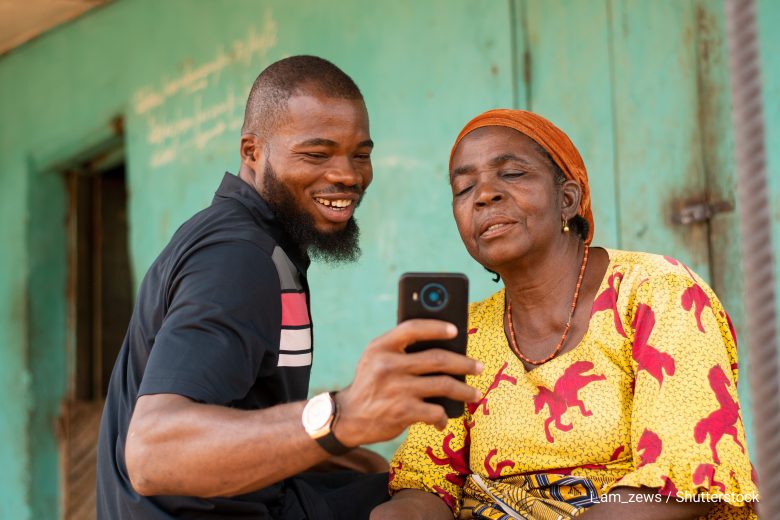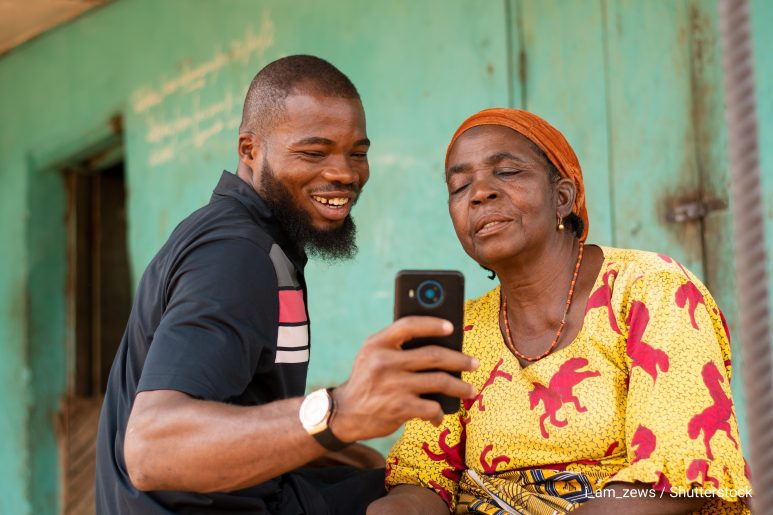By Raphael Mweninguwe
Africa is not being fairly represented to its own people and the world by the media and despite several reports highlighting problems with media coverage, including the use of stereotypes and an emphasis on negative stories, change has been slow.
In 2022 UNICEF Malawi published ‘Child Rights Reporting Guidelines’ for the media, accusing it of using negative stereotypes when reporting about children. According to UNICEF the media reports very negatively about children to the outside world and issues such as child marriages and defilement dominant media coverage in Malawi.

UNICEF argues further that the media ‘hardly highlights the rights and entitlements that apply to children’.
While Malawi is specifically mentioned regarding its negative reporting to the outside world by UNICEF, Africa in general is suffering from negative stereotypical news coverage. Most of the stories published about Africa centre on conflicts or wars, poverty, slums, corruption, famine, droughts, floods, kidnappings, irregular migration and xenophobia among others.
“Africa is presented in that negative way in the media because of two reasons. First, journalists are part of society that experiences broken systems like poor roads, poor education, poor health services, rampant corruption and many others. They are writing stories in such a negative manner because they want to express their frustration in their reporting,” says Ellard Manjawira, Senior Lecturer of Media and Journalism at the Malawi University of Business and Applied Sciences in Blantyre, the country’s commercial capital.
He says the second reason why Africa is portrayed negatively in the media is because journalists “take a lead from the negative reporting by the Western media”.
“The Western media set the agenda in their reporting and African journalists think that is the best approach,” he says.
However, he admits that the African media does not always report negatively about Africa, but it tries to give some positive coverage.
“In a few cases positive things are reported, but in these positive reports, a positive thing is shielded by a negative aspect. For example, a positive story on the opening of a new road [in Africa] would have negative aspects and being highlighted like project delay, embezzlement of allocated funds and inflation of project cost,” he says.
The only detailed research on how Africa is being represented in the media was published in 2021 by Africa No Filter (ANF). The research found that more than 50% of the African editors who participated in the study had negative stereotypes of the stories and events happening on the continent. According to the findings, what the media believes is news in Africa is “a crisis”.
“There is a general perception among journalists that positive news is no news, but negative news is news,” says Manjawira, adding, “Such negative coverage of Africa by the media locally and internationally is for attracting audiences with the mentality that bad news sells more than good news”.
Violet Mengo Nakamba, a senior reporter at the Zambia Daily Mail told Media Diversity Institute in an email response to a questionnaire that Africa is represented negatively to the outside world by the media because “in most cases, the outside world has a negative perception about Africa”.
“I don’t know whether this is what is preferred by the media houses where journalists work or not. It is rare that you hear [or read] about African stories that are positive to the African world. It is either on poverty and how most Africans live below the poverty line, or it is about corruption and how leaders have misused public funds, or it is about climate change and how Africans are the worst affected,” she says.
She says any positive story about Africa means that the story has been published by a government-controlled media to show the world that the State is doing something good for the people. “But very rarely will you see positive reporting in the African media about Africa, unless it is an event or an exceptional occurrence or an achievement,” she says.
Nakamba points out that the international media has negative stereotypes of African stories believing the motivation behind them is “ to get aid from the outside world, while locally people understand it to mean that the media house is privately run and is against the government”.
Ugandan Journalist and National Geographic Storytelling Explorer, Fredrick Mugira, agrees that “some of these stories represent Africa and African communities damagingly”.
“I believe most journalists contribute to this knowingly but also, to a small percentage, unknowingly. There are several reasons behind this,” he says, adding, “Some of these stories are written by reporters who prefer to keep a blind eye to Africa’s history, culture, people, and context. They never care about these”.
Mugira who founded the Water Africa Journalists, a network of African journalists covering water issues, says some journalists, especially in developing countries, prefer to report more on the negative side, “giving birth to a generation that likes what is negative and hates what is good”.
“This is why bad or negative news about Africa and other developing continents is quick to sell compared to the opposite,” he says.
Is there a solution to this?
As a solution ANF recommends that there should be a commitment on the part of the African media to properly represent Africa in its coverage of news. It also recommends that good journalism requires investment, noting that many media houses including journalists themselves need to be trained. That investment in people and the industry as a whole requires a large financial investment.
“Reporters should know not only how to write good and appealing stories but also the possible consequences of the stories they are about to write. They may also find alternatives for presenting the information in a better way,” says Mugira.
To break the negative stereotype of African stories, says Manjawira, the media should not always focus on the negative.
“When a positive issue has occurred let it be reported other than just report on the negative all the time,” he suggests.
Nakamba concludes, “The best way of representing Africa is to show a balanced article of both good and bad, there is so much that Africa has done that has gone unnoticed, we can choose to tell our story differently.”
Photo credit: i_am_zews / Shutterstock

